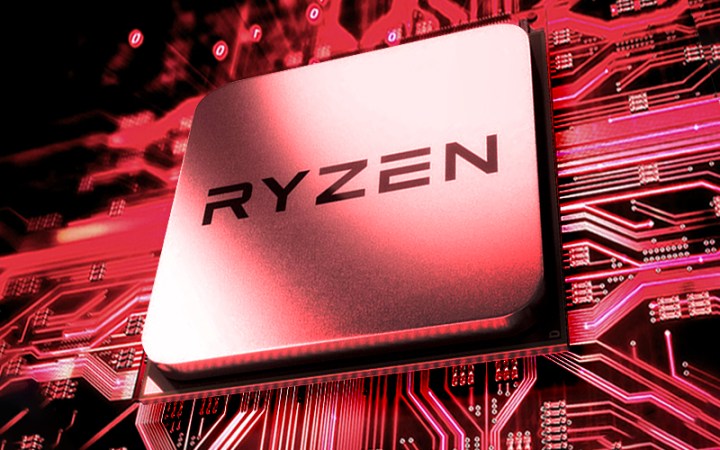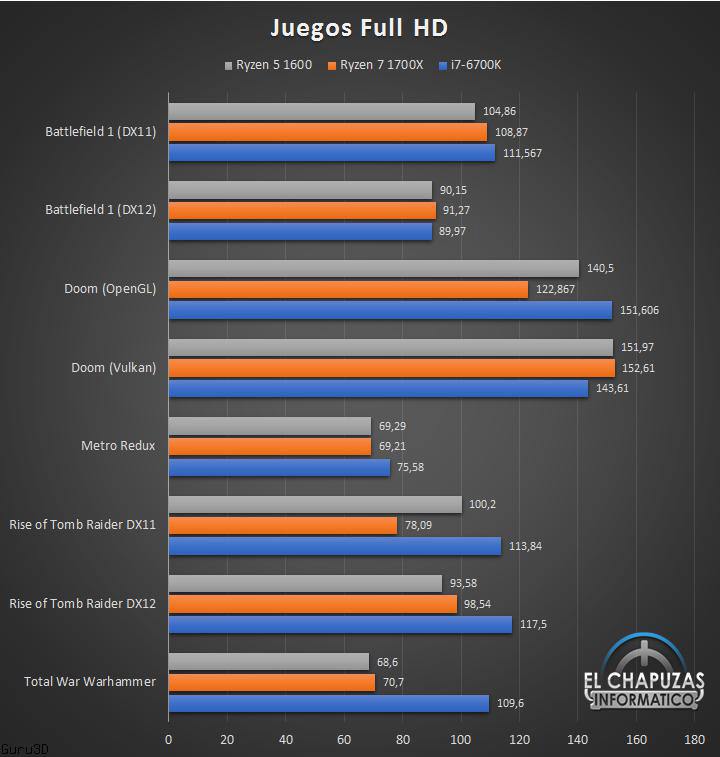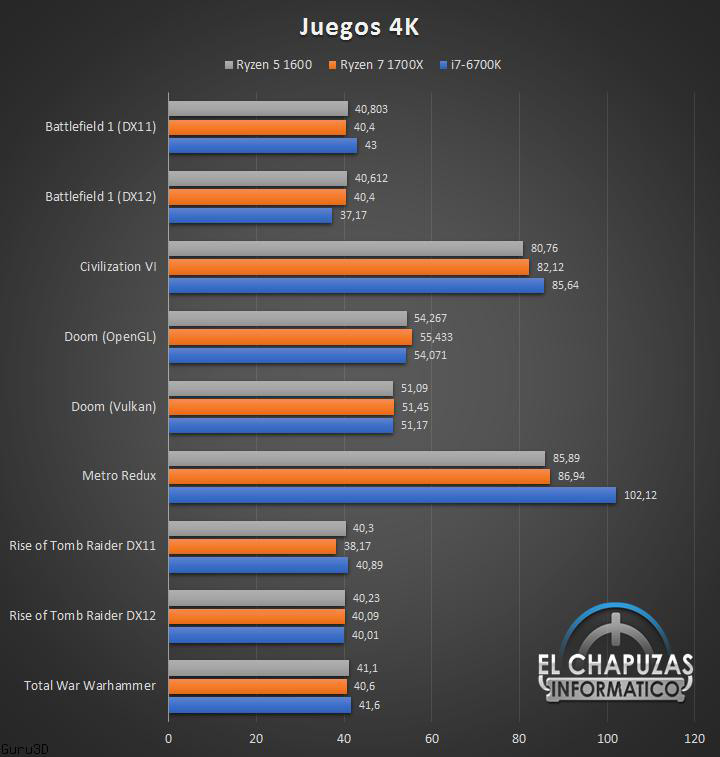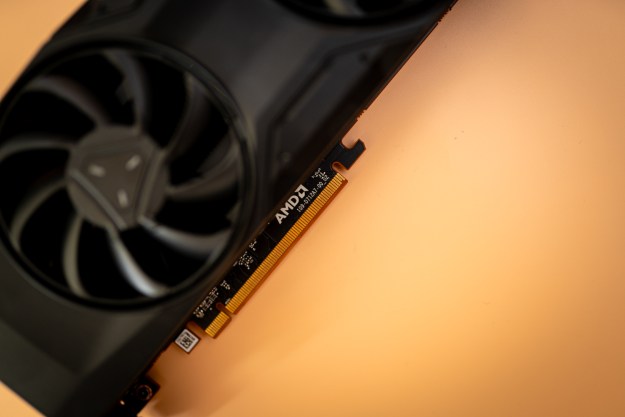
Typically review sites are sent hardware before an official release, so that those publications can have a review ready for launch day. In most cases though, they are forced to sign a non-disclosure agreement that makes them liable if they leak any information early. In this case, Spanish site El Chapuzas (via Guru3D) claims it never had to sign one, so it’s off the hook and we get to learn about the 1600 chip a little earlier than expected.
Testing using an MSI X370 XPower Gaming Titanium motherboard, G.Skill TridentZ DDR4 memory running at 2,400MHz, and a GTX 1070 graphics card, the results the AMD Ryzen 5 1600 put out were rather impressive. It was able to hold its own against comparable and higher-clocked Intel hardware and in many cases was only a few points behind the higher-specced Ryzen 7 1700X.
One area where it did fall behind the Intel i7-6700K was in some gaming tests. Although games like Battlefield 1 and Doom (especially using the Vulkan API) showed comparable performance, other games like Rise of the Tomb Raider and specifically Total War: Warhammer, gave a distinct lead to the Intel hardware.
Those differences were far smaller at higher resolutions, however.
Memory test AIDA also saw the Ryzen hardware fall behind a variety of Intel offerings. However, it should be noted that EL Chapuza’s early release testing did mean that optimizations and proper firmware were not available for the MSI motherboard, which meant operating the RAM at a maximum of 2,400MHz, rather than the 3,600MHz it is rated at.
Regardless of that drawback, however, the results are still impressive. The Ryzen 5 1600 is far from a top-of-the-line product and will retail for around $220 when it launches on April 11, which undercuts many of the Intel chips it was compared against here. When you factor in the future where more optimizations will be made to the design, and where we’ll see a predominance of higher-resolution game and benchmark testing, the 1600 could be one of the most attractive Ryzen chips AMD puts up for sale.
Look out for our more complete review in the coming week.
Editors' Recommendations
- AMD’s upcoming APUs might destroy your GPU
- AMD Zen 5: Everything we know about AMD’s next-gen CPUs
- We have some good news about AMD’s next massive CPU launch
- AMD may finally launch what we’ve all been waiting for later this year
- AMD’s new integrated graphics might beat popular Nvidia GPU








